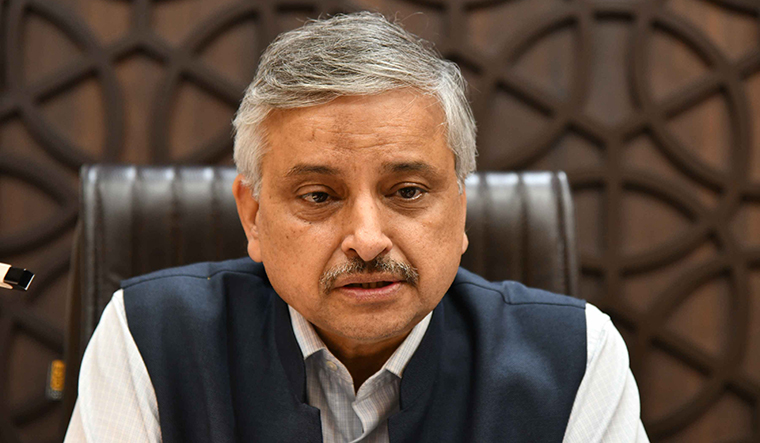Stigmatisation of coronavirus patients is discouraging people from coming forward for testing at an early stage and a delay in treatment may lead to higher mortality, AIIMS director Randeep Guleria said on Thursday, stressing that early diagnosis is the key to fight the deadly virus.
Stating that the primary treatment for COVID-19 is supportive treatment in more than 80 per cent of the patients and oxygen therapy in around 15 per cent of patients along with other drugs, Guleria said convalescent plasma therapy is being used at various centres across the country in the treatment of coronavirus patients.
"At various centres, we have started using convalescent plasma that is the blood of COVID-19 patients who have recovered. It is heartening to see that a large number of individuals who have become alright have come forward and volunteered to donate their blood which shows the commitment of our citizens when it comes to fighting the disease," he said at a press briefing on Thursday.
The doctor, however, said that COVID-19 is not a very deadly disease and 90-95 per cent of those infected can recover but a delay in treatment could lead to higher mortality among patients.
He described that patients are currently facing a lot of challenges and stigma which is not justified.
Majority of the patients who have recovered from COVID-19 are "symbols of hope and victory", he said, adding that stigmatisaton was creating huge problems and panic in the society and these individuals and their families are facing hardships.
"This is not justified and it is actually causing increasing morbidity and mortality," he said.
"Because of the stigma what is happening is that many patients who have COVID-19 or flu like symptoms are not coming forward to healthcare facilities. They are coming very late when they are really breathless and this is leading to higher mortalities," he said.
Guleria said many of these patients can be saved by just one treatment that is by giving oxygen.
When these individuals have pneumonia or viral infection and the oxygen in the blood becomes low it can lead to cardiac or neurological problems.
"Our strategy of having more oxygen beds is based on this," he said.
According to Dr Guleria, 80 per cent of the individuals will have mild illness, remaining 15 per cent can become alright just with supportive and oxygen therapy and less than five per cent will need ventilator or critical care.
"We need to reach out to those patients who are right now scared to come out because of panic and stigma that we attached to the disease and are not getting proper treatment," he said.
He appealed to everyone not to create an environment of fear and panic for such individuals who for an unfortunate reason got this infection.
"Consider the stress and strain that the entire family goes through. They are isolated for 14 days in a quarantine facility and are unable to meet family members for several days. Instead of sympathising for them we have created an environment of fear and panic which is not justified.
"We have to encourage people to come out for testing. If one is tested early, the treatment will start early and this will save lives," he said, adding the government has ramped up testing to a large extent.
As far as newer drugs are concerned, Guleria said hydroxychloroquine and azithromycin arealready been looked along with various other repurposed drugs which are available in country. Also, newer drugs are undergoing clinical international trials under the WHO.



